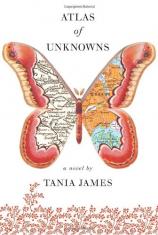Reading Group Guide
Discussion Questions
Atlas of Unknowns

1. What is the significance, both literal and metaphorical, of the novel’s title?
2. What does America symbolize to Anju and her family? In what ways is the influence of the West felt in their small village?
3. In an attempt both to condone and to apologize for Anju’s betrayal, Melvin says, “There is good and there is bad, Linno. And then there is bad for good’s sake” (page 32). Is Melvin right about this? How does Anju justify her betrayal? How can Linno’s inability to confront Anju be explained?
4. How does the Vallara family’s Christian heritage influence the way Ammachi, Melvin, Linno, and Anju make sense of their experiences?
5. The narrator only gradually reveals aspects of Gracie’s personality and the circumstances surrounding her death. How does this serve to build dramatic tension throughout the novel? How does Gracie’s death affect the main characters?
6. As Bird is planning to approach Anju for the first time, she thinks, “Time is but a circle, and a person might run from the past only to find herself faced with it in the end” (page 66). How does the past influence Bird’s present life? In what ways do other characters try to flee from their pasts? Do they succeed, or are they also forced to face the past in some way?
7. What is pleasurable for Anju about life in America? What is disappointing? What cultural differences are most jarring?
8. How do wealth and fame figure into the narrative? Consider the characters of Mrs. Solanki, Kuku, and Abraham Chandy: What advantages do they possess? What kinds of limitations do they experience, either because of or in spite of their positions?
9. How does Linno view her talent as an artist? What role does the creative process play in her life?
10. Anju observes of the Solankis: “There is no discussion that this family will not touch, no question unposed, no secret kept. Yet for all their honesty, all these freedoms of speech, neither Rohit nor his parents seem to know what to make of one another... Whether this is better or worse than her own family, Anju cannot tell” (page 111). Is the honesty among the Solankis better or worse than the secrecy maintained in Anju’s family?
11. How do women’s desires conflict with the roles they are expected to play in the novel? How does this conflict change over the course of generations, in the lives of Ammachi and her sister; Gracie, Bird, and Mrs. Solanki; Alice, Linno, and Anju?
12. When the sisters are finally reunited, Anju chooses to face Linno away from the cameras. How does this decision reflect a change in Anju’s values? What does Linno’s response say about her own internal transformation? What does this ending reveal about their relationship?
13. What role do prophecy, guilt, confession, and redemption play in the novel?
14. How does the novel illuminate the contentious issues surrounding immigration in a post-9/11 world? What does it say about the cultural differences between contemporary India and America?
Suggested further reading
Aravind Adiga, The White Tiger; Kiran Desai, The Inheritance of Loss; Amitav Ghosh, Sea of Poppies; Jhumpa Lahiri, Unaccustomed Earth; V. S. Naipaul, A House for Mr. Biswas; Arundhati Roy, The God of Small Things; Salman Rushdie, Midnight’s Children.
Atlas of Unknowns
- Publication Date: April 21, 2009
- Hardcover: 336 pages
- Publisher: Knopf
- ISBN-10: 030726890X
- ISBN-13: 9780307268907







